
For some people, the prospect of wearing hearing aids for the first time can bring a mix of emotions—excitement, anticipation, and maybe a bit of uncertainty. In this comprehensive guide, we explain what you can expect with your first pair of hearing aids, to help ensure you get the most out of your hearing loss treatment.
From the initial fitting to the adjustment period and ongoing care, we’ll provide expert insights and tips to make your transition into the world of better hearing as smooth as possible.
Wearing Hearing Aids for the First Time
Getting your first pair of hearing aids is a significant step toward a better quality of life. However, adjusting to new routines or experiences can be a challenge for anyone. When it comes to wearing hearing aids for the first time, knowing what to expect can make all the difference.
Hearing Aid Fittings
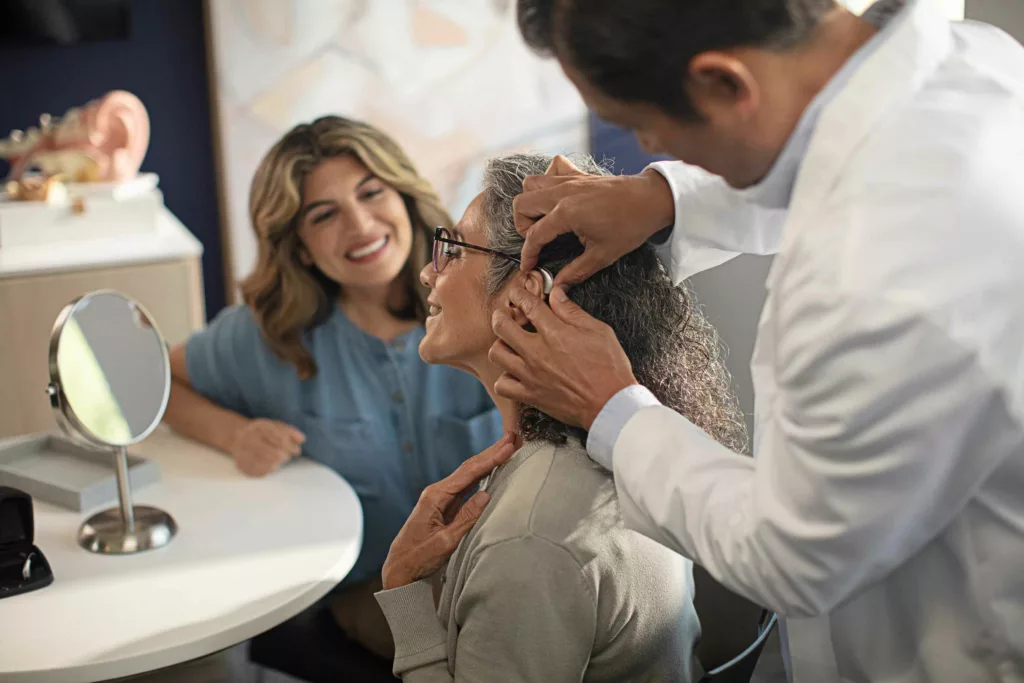
Your first fitting appointment plays a critical role in tailoring your hearing aids to suit your unique hearing needs and lifestyle. Effective communication with your hearing specialist during this time is essential to ensure your comfort and satisfaction with your new devices.
Physical Fitting and Comfort
Assessing the fit of your hearing aids is crucial to prevent any discomfort or feedback issues. Your care provider will make sure that your hearing aids fit comfortably and securely in your ears and address any of your questions or concerns about daily wear.
Customization
Your hearing care specialist will be able to tailor your hearing aids to your unique needs, adjusting settings to match your specific hearing loss profile. This can involve fine tuning settings like volume, frequency response, and sound processing to ensure optimal clarity.
Orientation and Operation
Your hearing care specialist will also be able to show you how to use your new devices, including how to easily put them in, take them out, clean, and store them. You’ll also receive hands-on guidance on how to operate your hearing aids including learning how to turn them on and off, adjust the volume and other settings, and replace or recharge the batteries.
Real-World Testing
You’ll want to wear your hearing aids in a variety of real-world situations during the first few days of getting them. Kind of like a test drive, this pinpoints any necessary adjustments that should be made to the fit and settings. Your hearing care specialist will also be able to advise you on how many hours a day you should wear your new hearing aids as you adjust to wearing them regularly.
Hearing Aid Adjustment Period
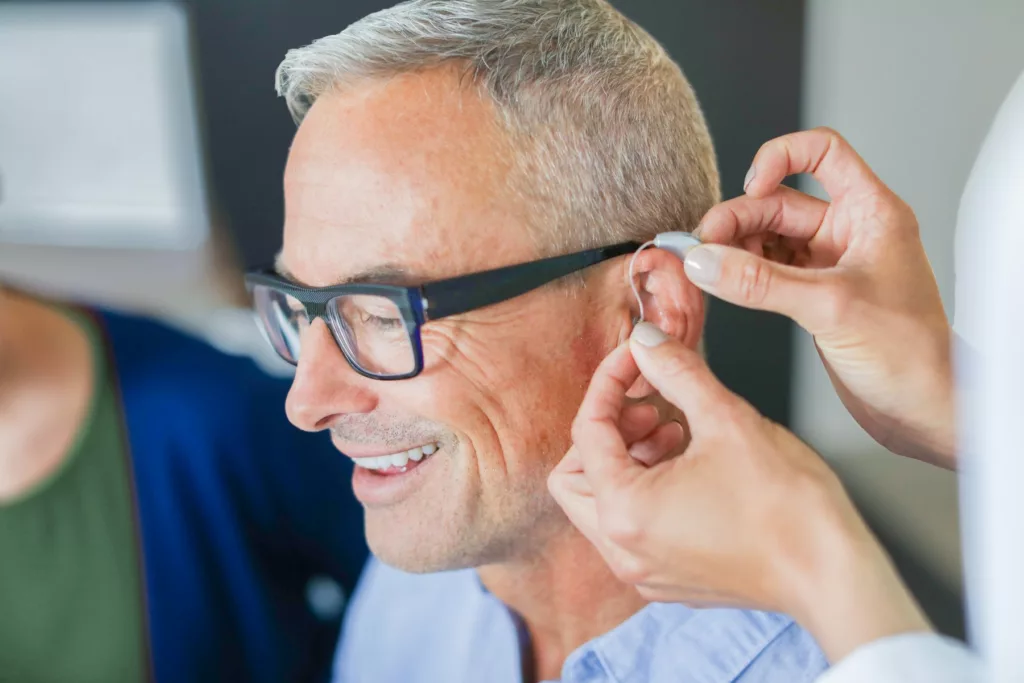
Whether you are using hearing aids for the first time or transitioning to a new set, you can expect to undergo a brief adjustment period as you get accustomed to your new settings and features. During a hearing aid adjustment period, you will likely need to acclimate to the many sounds and sensations that hearing loss treatment can restore.
It’s important to remember that this adjustment period is temporary. With patience, practice, and guidance from your specialist, you’ll gradually adapt to your new hearing aids and the improved world of sound they offer.
Sound Overload
Initially, you may experience a bit of sound overload as your hearing aids amplify a wide range of sounds you may not have heard clearly for some time. Everyday noises, like footsteps, rustling leaves, or even the hum of appliances, might seem surprisingly loud. This is a normal part of the adjustment process, and you will eventually acclimate, allowing you to enjoy a richer hearing experience.
Sound Quality
Your hearing aids will instantly restore an array of sounds you probably haven’t heard in a while. As your brain adapts to this new sensory input, you may notice some sounds may appear sharper or different from what you remember. For some people, the sound of their own voice will seem especially different to them. Over time, your brain will refine its ability to process and interpret these sounds, naturally improving the overall quality of your hearing experience.
Background Noise
Modern hearing aids come with the capability to filter out background noise, but it may take some time to fully adapt to this. You might initially find it harder to focus on specific sounds or conversations in noisy environments. Your hearing specialist can adjust your hearing aids to minimize background noise, but it may take a bit for your brain to relearn how to focus.
Rest assured, with time and practice, your ability to navigate noisy environments will improve, making it easier to fully engage in conversations and activities again in a variety of settings.
Feedback
Hearing aids are designed to minimize feedback (whistling or squeaking sounds) as much as possible. However, you may encounter feedback in the early stages, especially when putting in your devices, as you adapt to doing so correctly. As you become more accustomed to your hearing aids, feedback issues should diminish, allowing you to fully enjoy the benefits of your improved hearing without interference.
Conversations
When wearing new hearing aids for the first time, engaging in conversations, especially with multiple people at once, might be challenging at first. Your hearing aids may pick up more voices and sounds than you’re accustomed to. Practice is key to improving your ability to follow conversations, and adjustments to your hearing aids can fine-tune their performance for this purpose.
Over time, you’ll find that your hearing aids become a valuable tool, enhancing your social interactions and making conversations more enjoyable and accessible.
Hearing Aid Care and Maintenance
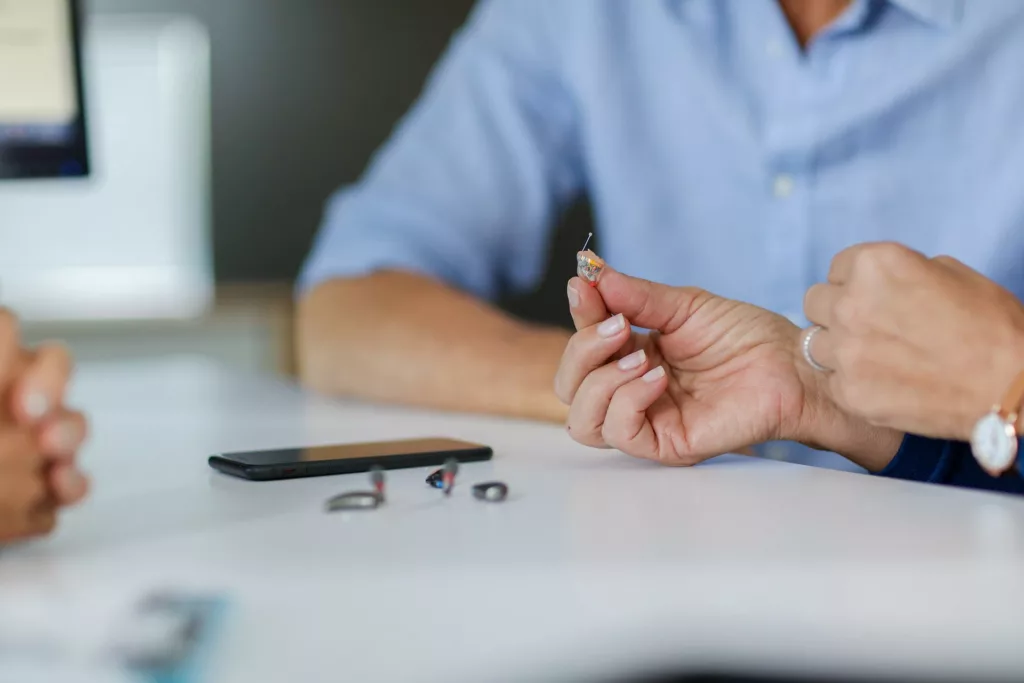
With your first pair of hearing aids, you should expect to incorporate some basic care tasks and ongoing maintenance in your routine to ensure the longevity and performance of your devices.
Cleaning Your Hearing Aids
Cleaning your hearing aids every day is vital to keeping them in good working order. You’ll need to gently wipe the external surfaces with a soft, dry cloth to remove any earwax, debris, or sweat. When you’re not wearing them, make sure to store your hearing aid in a safe place that’s dry and cool.
When to Remove Your Hearing Aids
Knowing when to remove your hearing aids is essential for both comfort and safety. While many modern hearing aids possess a degree of water resistance, extended exposure to moisture can result in permanent damage. Make sure to remove your hearing aids before:
- Taking a shower
- Swimming or hot tubbing
- Going in a sauna
- Blow drying your hair
- Using hairspray
- Going to sleep
- MRI scans or surgery
Our Specialists Are Here to Provide New Hearing Aid Wearer Assistance
Understanding what to expect during the adjustment period and how to properly care for your first pair of hearing aids can help ensure your transition to better hearing is as smooth as possible. On your journey to improved hearing, remember that you’re not alone. Our team of dedicated specialists at any of our hearing clinics located across the nation are here to provide guidance, support, and expertise.
Find a hearing clinic near you to begin your journey to better hearing today. We are here to support you every step of the way.

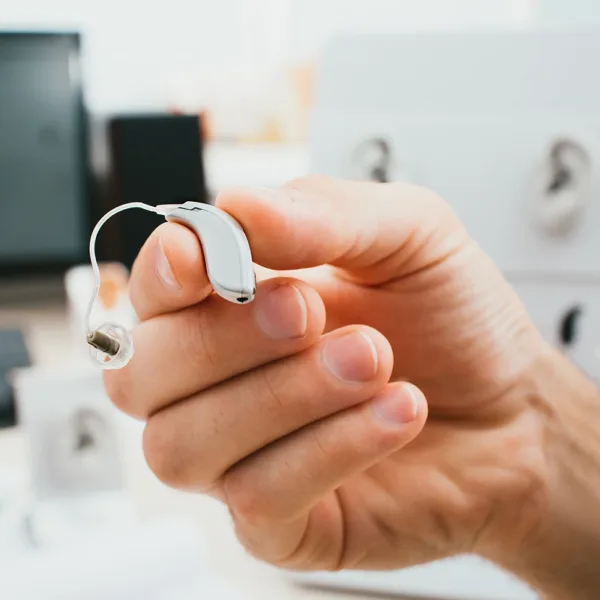
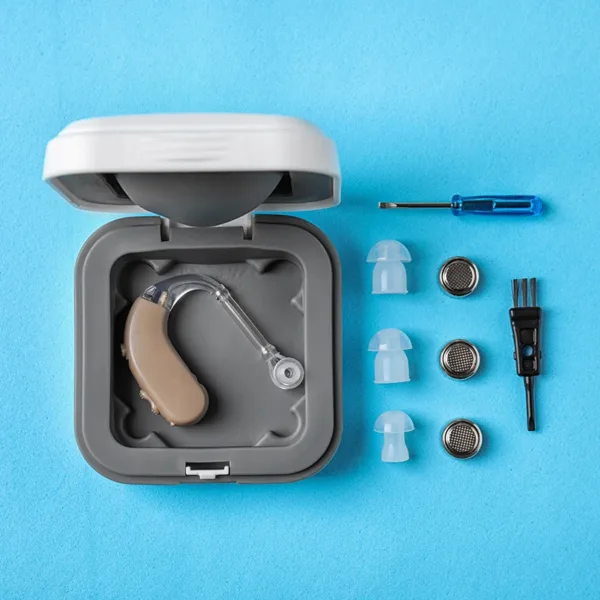
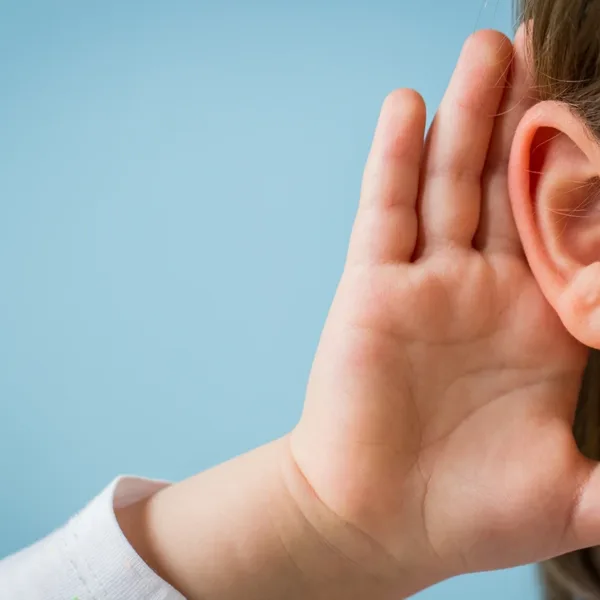

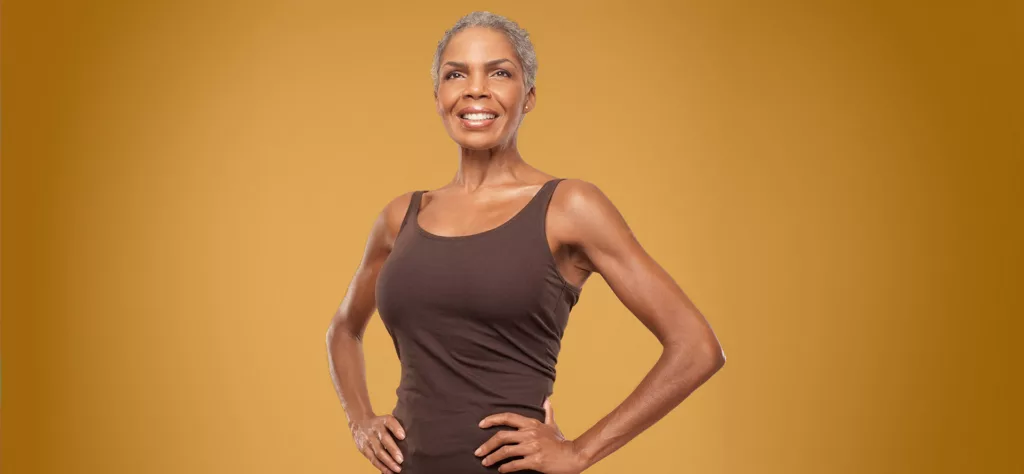

Have a question or Comment?